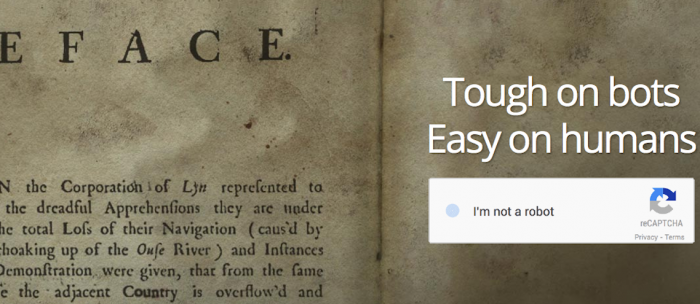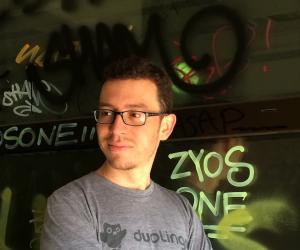
Guatemalan computer science professor Luis von Ahn is the master of crowd sourcing: everyday his two creations, reCAPTCHA and Duolingo, are harnessing the intellect of hundreds of thousands of people to help digitalise all of human knowledge and translate the Internet into less widely-spoken languages.
Most Internet users will know what a reCAPTCHA is – it’s one of those little distorted sentences you’re asked to type to prove you’re human when buying tickets online or set up a Facebook account. Those were invented by von Ahn and his colleagues at Carnegie Mellon University in 2003 and acquired by Google in 2009.
When Von Ahn heard that there were 200 million reCAPTCHAs typed a day, each taking around 10 seconds to type, he worked out that 500 000 human hours were being spent everyday just typing out scrambled letters. What if you could use those 10 seconds in a useful way? Von Ahn set out to find a way to make those hours valuable.
The world’s books – all of them in libraries of printed volumes of human knowledge – are being slowly digitalised to make the information more widely available via the internet, but automating this process has challenges because computers struggle to decipher words from old, faded pages. The reCAPTCHA system now asks you manually type in one of these words the computer system hasn't been able to recognise, meaning that every time you’re required to type in a reCAPTCHA you are helping digitalise millions of books.
ReCAPTCHA’s software is responsible for helping digitalise the equivalent of two million books a year.
Von Ahn’s mastery of human computation doesn't end there: his INDEX Award 2015 winning language learning app, Duolingo, is harnessing the intellect of its users to translate pages of the internet. Users practice their new language skills on these translations, many of which are used by news channels to make their articles more accessible to people all around the world.







